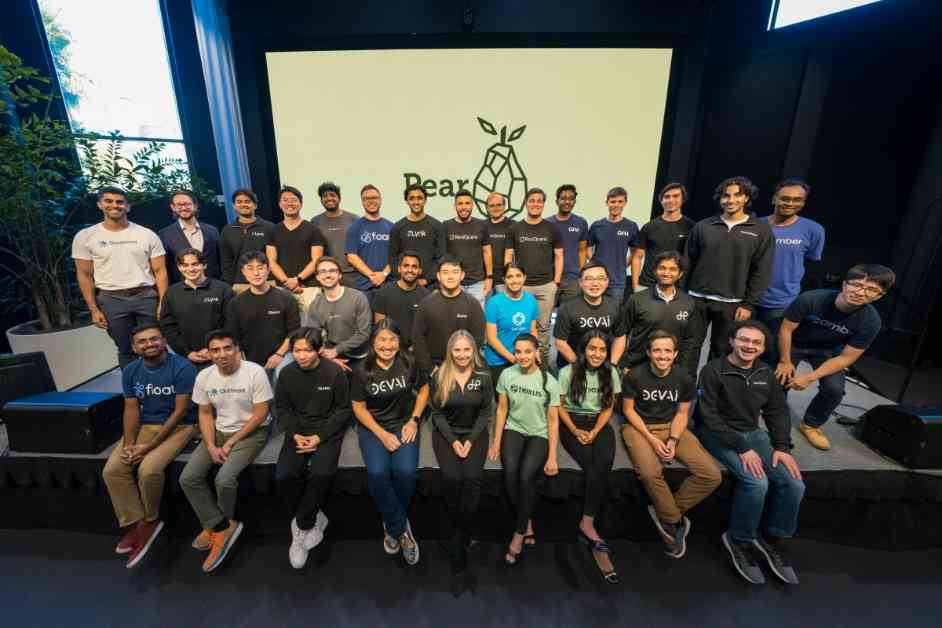Pear VC, a well-known venture firm focusing on pre-seed and seed stages, has been operating an accelerator program for the past decade with approximately 10 startups in each batch. The program has successfully launched companies like Viz.ai, Affinity, and Valar Labs, which have made significant impacts in their respective fields.
In an effort to enhance its accelerator program, Pear VC has decided to expand its size and offer additional services to the participating companies. The newly revamped 14-week program, known as PearX, will now run twice a year and accommodate around 20 companies per batch. This move aims to provide more support to startups and help them thrive in the competitive market.
What sets PearX apart from other accelerators like Y Combinator is its focus on revealing the startups at the demo day, a gathering attended by numerous VC partners from top firms. The funding provided to PearX startups can range from $250,000 to $2 million, depending on their specific needs and stage of development. This year’s demo day showcased 20 innovative companies, with a strong emphasis on AI-driven solutions.
Among the standout companies at the demo day were Neutrino AI, which specializes in identifying the best infrastructure for AI applications, Quno AI, offering automated market research solutions, ResiQuant, developing catastrophe models for home insurance carriers, Self Eval, a real-time production monitoring system, and TeachShare, a platform for creating personalized lesson plans for teachers.
Neutrino AI’s focus on optimizing AI models for different applications addresses a common challenge faced by companies working in this field. By helping developers choose the most suitable models, Neutrino AI aims to streamline the development process and reduce operational costs.
Quno AI’s innovative approach to market research automation can revolutionize how brands gather customer insights. By using AI agents to collect and analyze data in real-time, Quno AI offers a more efficient and cost-effective solution for market research.
ResiQuant’s development of catastrophe models for insurance companies highlights the importance of accurate risk assessment in the face of natural disasters. By leveraging advanced modeling techniques, ResiQuant aims to help insurance carriers better evaluate risk and potentially lower premiums for less vulnerable properties.
Self Eval’s real-time production monitoring system addresses the critical need for quality assurance in manufacturing processes. By using AI and cameras to detect errors as they occur, Self Eval can help companies identify and rectify issues before products leave the factory floor, preventing costly mistakes.
TeachShare’s platform for personalized lesson plans caters to the individual needs of teachers, offering a tailored approach to curriculum development. By aligning lesson content with educational standards and adapting to each teacher’s requirements, TeachShare aims to enhance the teaching experience and improve student outcomes.











